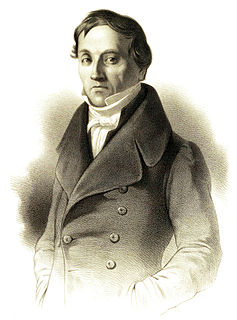A Quote by Aristotle
Of the irrational part of the soul again one division appears to be common to all living things, and of a vegetative nature.
Quote Topics
Related Quotes
In [the soul] one part naturally rules, and the other is subject, and the virtue of the ruler we maintain to be different from that of the subject; the one being the virtue of the rational, and the other of the irrational part. Now, it is obvious that the same principle applies generally, and therefore almost all things rule and are ruled according to nature.
Nature has poured forth all things for the common use of all men. And God has ordained that all things should be produced that there might be food in common for all, and that the earth should be in the common possession of all. Nature created common rights, but usurpation has transformed them into private rights.
The distinguishing of the strata, or layers, in the embryonic membrane was a turning-point in the study of the history of evolution, and placed later researches in their proper light. A division of the (disc-shaped) embryo into an animal and a plastic part first takes place. In the lower part (the plastic or vegetative layer) are a serous and a vascular layer, each of peculiar organization. In the upper part also (the animal or serous germ-layer) two layers are clearly distinguishable, a flesh-layer and a skin-layer. (1828)
The soul may not be destroyed. The soul goes on forever. Like the number pi, it is without cessation or conclusion. Like pi it is a constant. Pi is an irrational number, incapable of being made into a fraction, impossible to divide from itself. So, too, the soul is an irrational, indivisible equation that perfectly expresses one thing: you.
With reason, then, the common opinion of mankind, little affected by the few dissentients who have contended for the opposite view, has found in the careful study of nature, and in the laws of nature, the foundations of the division of property, and the practice of all ages has consecrated the principle of private ownership, as being pre-eminently in conformity with human nature, and as conducing in the most unmistakable manner to the peace and tranquility of human existence.
The soul has two parts, one rational and the other irrational. Let us now similarly divide the rational part, and let it be assumed that there are two rational faculties, one whereby we contemplate those things whose first principles are invariable, and one whereby we contemplate those things which admit of variation.
The romantics were reacting against a modern culture that divided individuals from themselves (through specialisation in the division of labor), from others (the competitive market place) and from nature, which had been reduced down to a machine through technology. The antidote to such division is unity and wholeness, which means feeling at home again in the world.




































